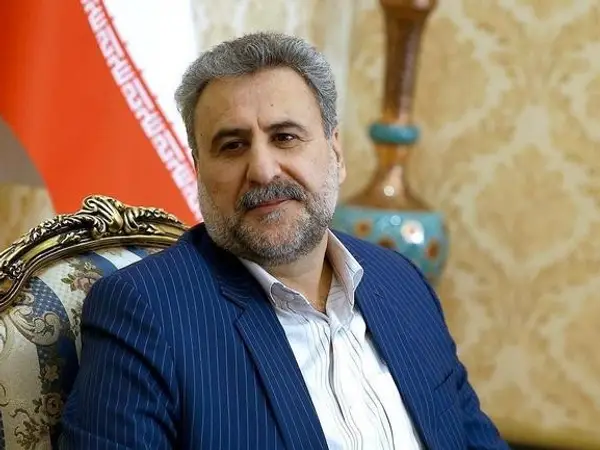After more than two months of relative silence in Iranian media about nuclear talks, pundits have started debates on the diplomatic impasse amid popular protests.
What triggered the new debates was Tehran's declaration about expanding 60-percent uranium enrichment at a second site in response to the IAEA Board of Governor's resolution this month condemning Iran's lack of cooperation with the International Atomic Energy Agency (IAEA).
In an article in Tehran's leading economic daily, Donyay-e Eqtesad, Heshmatollah Falahatpisheh, the former head of the Iranian parliament's Foreign Policy and National Security Committee said that the new developments indicate that the nuclear dispute with the West has become more challenging than ever as the two sides are left to choose between diplomacy or war.
The Europeans trio, the UK, France and Germany, condemned Iran's "nuclear escalation" after IAEA Chief Rafael Grossi confirmed the news about 60 percent enrichment at a new site. The E-3 said they will consult with their international partners on how to deal with the issue. This comes while Russia's nuclear negotiator Mikhail Ulyanov has supported Iran's move as "A predictable decision on Tehran's part regarding US and Europe's action to escalate tensions."
Falahatpisheh told Donya-ye Eqtesad that "handling the nuclear challenge has become very difficult as Iran is taking steps to preserve its bargaining power in possible negotiations." He added that the West's policy is to continue its pressures on Iran through imposing sanctions. This will bring the debate out of the diplomatic framework. At the same time, Iran which is badly hit by the sanctions does not wish to waste any time and that is why it resorted to [more] 60-percent enrichment."
He said the next step for Europe would be taking Iran's case to the UN Security Council. "If this happens, Tehran might boost enrichment to beyond the 60-percent level. So, the Europeans will activate the trigger mechanism" that brings back all the previous international sanctions against Tehran. He said in any case Iran will boost its enrichment level and this is in no one's interest.
As a result, argued Falahatpisheh, "there are only two options: Starting a war or returning to the negotiating table.” It appears that by expanding the 60-percent enrichment, “Iran is saying that it is also prepared for war." He added that in case the West begins a hybrid war against Tehran, Iran will also follow a series of hybrid challenges. However, as far as Tehran is concerned, going to war is the least likely option.
Meanwhile, Reformist daily Arman Emrooz wrote on Saturday that although the US government wishes to return to the 2015 nuclear accord (JCPOA) or a similar agreement, it knows that accepting a deal will harm its image in the international community. Although Arman Emrooz did not elaborate, it most likely meant that Washington does not want to make a deal with a country plunged in turmoil for over two months as protesters take to the streets daily, chanting slogans against its embattled dictator Ali Khamenei.
The paper quoted Iranian analyst Mehdi Motaharnia as saying that Iran and its supporters Russia and China are in favor of the status quo. This corroborates with what Khamenei said in his speech to the Basij militia on Saturday when he absolutely ruled out any sort of dialogue with the United States.
In one of the latest political commentaries that suggest reaching an agreement with the United States can calm down the ongoing protests in Iran, conservative political commentator Mohammad Mohajeri said: "The Iranian government should accept international laws and respect others' rights and interact with the world community in a way that would put the country's economy in a good shape. And this is not possible in any way other than [reviving] the JCPOA."
